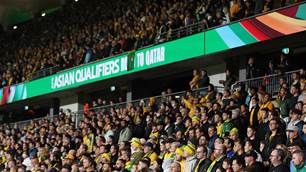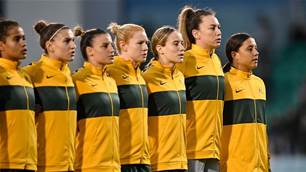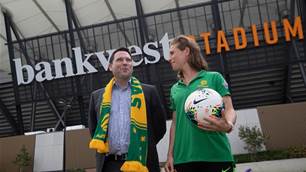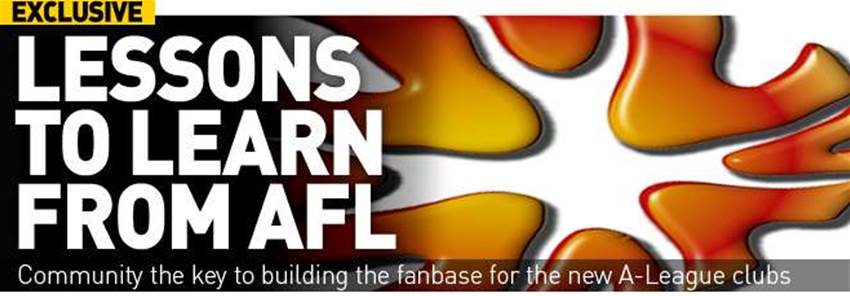ANALYSIS: For A-League clubs like Gold Coast, the AFL’s community minded approach to their sport is something to learn from as football seeks to grow its supporter base.
In a speech to La Trobe University, AFL CEO Andrew Demetriou offered an insight into some of the reasons why his sport has grown to a stage that it generates around $3.4 billion and employs around 10,000 people (according to the AFL).
With two new clubs joining the A-League together with a plateau in crowds across the league, it's a message that should resonate in A-League boardrooms.
"We may be a big business and a sporting body but the AFL is also a community and cultural organisation that is in a unique and privileged position of being able to use our game and the interest it generates to effect social change," he said.
"People might ask what all of this has to do with football? The answer is everything. You can't claim to be a leader or leading organization if you don't care about or embrace the notion of trying to build a better community.
"We genuinely believe our success is based on our connection with the community."
Demetriou offered examples of the NAB Cup Bushfire Appeal match last year as part of the code's response to Black Saturday.
There are also examples of work in the communities such as Kinglake, a program to encourage women to be involved in the sport, multicultural and youth homlessness programs and the code's expanded vilification rule that were welcomed by the gay and lesbian community.
These are all instances of the AFL taking a pro-active approach to its place in Australian society. It's something a number of A-League clubs can learn from.
Gold Coast United failed miserably in making a connection with many on the Gold Coast last season. Their community programs were half-hearted, built largely on the belief that fans will turn up to see a successful side that was backed by a mega rich owner. They forgot that clubs are built around people and communities.
And while Miron Bleiberg's men were successful on the park, off the field the club lacked heart and soul. As one Gold Coast football insider told au.fourfourtwo.com: "We didn't like their approach... we're country people here, we don't like being talked down to."
Now the Gold Coast will also soon have an AFL side in the area, and Demetriou made it clear how the club would be set up.
"Make no mistake, the Gold Coast Football Club is being built by the Gold Coast community," he said in the speech.
However it's encouraging to see Melbourne Heart starting their community programmes and becoming accessible to the community. And that leadership comes from the top with former AFL administrator Scott Munn running the agenda at the new club.
Elsewhere, Sydney Rovers have begun their listening tour to gain feedback from their core community. And Sydney FC have also begun to boost their community initiatives after they failed badly to capitalise on their first A-League championship in 2006.
Football clubs are about people and communities. It's something the AFL have embraced. The A-League needs to follow suit.
Even the US has grasped the concept, with former MLS club President Peter Wilt recently spelling out his philosophy in an excellent deconstruction of how to create a successful club rather than a franchise.
As Demetriou added of his code: "It's a game that brings people together. And it's this commitment to community that's driving our expansion plans for Gold Coast and Western Sydney".
Related Articles

Last Socceroos World Cup home qualifier location confirmed

Canberra hoping for 2022 Matildas matches













